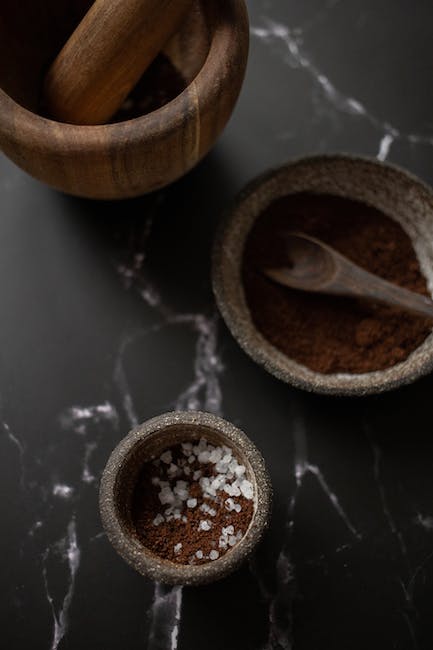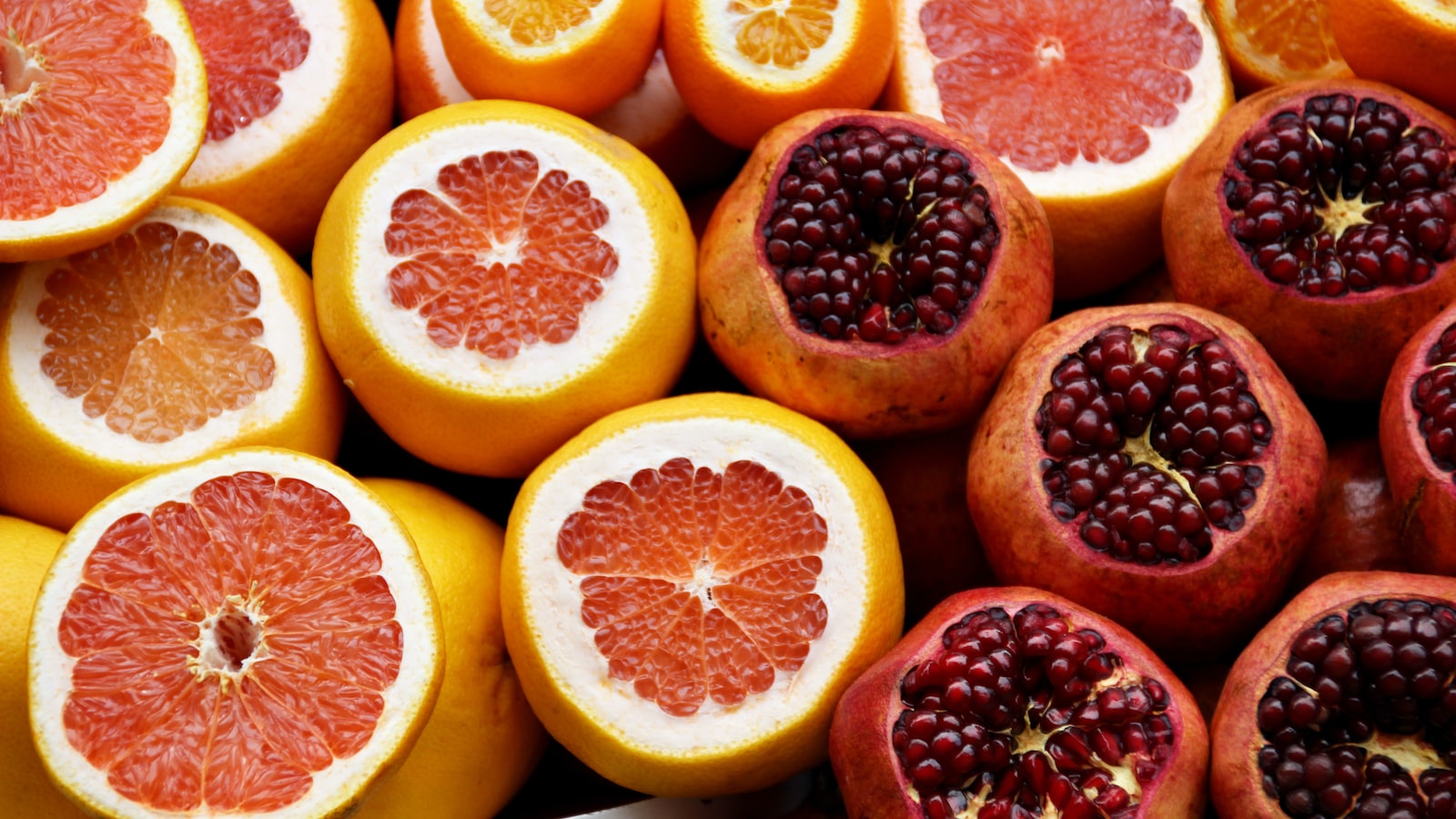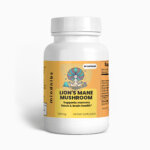
“Is Organic Coffee Your Next Healthy Habit? Let’s Discuss”
Coffee is undoubtedly one of the most loved beverages around the world. Every morning, billions of people wake up to the aroma of fresh coffee brewing in their kitchens. However, as the world shifts towards a more health-conscious lifestyle, many are starting to wonder about the health benefits of their morning cup of joe. With growing concerns about artificial ingredients and chemicals in everyday pantry items, many are turning to organic coffee as a healthier alternative. Is this a trend worth following? Can organic coffee be your next healthy habit? In this article, we’ll discuss the benefits and drawbacks of organic coffee and help you make an informed decision. So, grab a cup of coffee, settle in, and let’s get started!
1. Introduction: Why Organic Coffee is a Healthy Choice
Organic Coffee is considered a healthy choice for those who drink it regularly. It’s grown without the use of synthetic fertilizers and pesticides, which can cause harm to both our health and the environment. Conventionally grown coffee, on the other hand, can contain traces of these chemicals and can also contribute to soil erosion and water pollution.
Organic coffee is also rich in antioxidants, which help reduce harmful free radicals that can lead to diseases such as cancer. Antioxidants, like chlorogenic acid, are found in higher amounts in organic coffee compared to conventional coffee. Not only does it contain vitamins and minerals, but it also contains cafestol and kahweol, compounds that can provide protection against liver diseases.
Organic coffee also helps support a sustainable and eco-friendly farming practice. The cultivation and processing of organic coffee are done in an environmentally friendly way. Farmers use natural methods instead of harmful chemicals to control pests and weeds, preventing the degradation of air, water, and soil quality. Supporting organic farming practices can also help farmers earn a fair wage for their labor.
2. Organic Coffee vs. Conventional Coffee: Understanding the Difference
Organic coffee has become a trend in recent years, and for good reasons. It is not just another marketing ploy, as certified organic coffee meets stringent standards set by the USDA. In contrast, conventional coffee is often grown with chemicals, pesticides, and synthetic fertilizers. Here are some differences to help you decide if organic coffee is worth the extra cost.
- Health Benefits: Organic coffee is richer in antioxidants and nutrients than conventional coffee. It has lower levels of toxins and carcinogens, which means it’s better for your health. The organic farming process also ensures the soil and surrounding ecosystem are not harmed, which is better for the environment.
- Taste: The taste of organic coffee is often richer, smoother, and less bitter due to the specific roasting methods used. Though some coffee drinkers may prefer the bitterness in conventional coffee, it’s worth trying organic coffee to see if you prefer the taste.
- Sustainability: Organic coffee is cultivated in a sustainable manner that respects the natural habitat and helps preserve the soil. The farmers work in harmony with the ecosystem to develop the best growth practices. On the other hand, conventional coffee requires significant quantities of synthetic fertilizers that cause damage to the soil, nearby waterways and the environment.
Overall, switching to organic coffee is an investment in yourself and the environment. Remember, when you choose organic coffee, you’re also supporting responsible farmers who believe in sustainable agriculture. While it may cost a bit more than conventional coffee, the health and environmental benefits are worth it. So, go ahead and take a sip of organic coffee and enjoy a richer, healthier cup of joe.

3. Health Benefits of Organic Coffee: What Research Says
A growing body of research suggests that organic coffee offers a range of health benefits that cannot be found in traditional coffee. Here are just a few of the most compelling reasons to make the switch to organic coffee:
- Bioactive compounds: Organic coffee contains important bioactive compounds like chlorogenic acid and quinic acid, which have been shown to reduce inflammation and oxidative stress in the body.
- Antioxidants: Organic coffee beans are packed with antioxidants that help protect the body against damage from free radicals, which can lead to chronic diseases like cancer and heart disease.
In addition to these benefits, research has also shown that organic coffee is less likely to contain harmful chemicals and toxins such as pesticides and heavy metals, which can have a negative impact on your health. By drinking organic coffee, you can enjoy all the flavors and aromas of traditional coffee while also reaping the many health benefits that come with choosing organic.
So next time you’re shopping for coffee, consider making the switch to organic. Not only will you be doing your part to support sustainable farming practices, but you’ll also be making a healthy choice that will benefit your body and mind in the long run.

4. Organic Coffee and Antioxidants: How They Work Together
Organic coffee is gaining popularity because of its health benefits. When consumed in moderation, organic coffee can offer several advantages, such as improved cognitive function, lower risk of heart diseases, and better digestion. Additionally, antioxidants present in organic coffee can aid in neutralizing harmful free radicals in the body. These free radicals contribute to aging and chronic diseases, such as cancer and Alzheimer’s disease.
Antioxidants are substances that protect the body cells from damage caused by free radicals. They play a crucial role in preventing numerous health conditions. When consumed regularly, organic coffee can provide a substantial amount of antioxidants, which may help prevent the damage caused by free radicals. Some of the antioxidants present in organic coffee include chlorogenic acids, melanoidins, and caffeine. These compounds work synergistically to provide numerous health benefits.
One of the primary ways that antioxidants in organic coffee work is by slowing down the aging process. Free radicals damage the cells, leading to a decrease in the number of antioxidants and accumulated damage over time. Organic coffee antioxidants help prevent this damage by neutralizing the free radicals and reducing their impact on the cells. This action slows down the aging process and keeps the body functioning normally for longer periods. Therefore, drinking organic coffee can contribute to better health and wellness in the long run.
- In conclusion, drinking organic coffee can provide several health benefits
- Antioxidants present in organic coffee can protect the body cells from damage caused by free radicals
- Therefore, drinking organic coffee can slow down the aging process and improve overall wellness

5. Organic Coffee and Toxins: Why Avoiding Chemicals is Important
Choosing organic coffee over regular coffee is essential for the well-being of our bodies and the environment. Organic coffee is grown without the use of harmful chemicals such as pesticides, herbicides, and fertilizers. Exposure to these chemicals can lead to numerous health problems, including cancer, birth defects, and nervous system damage. It’s crucial to choose organic coffee to avoid these toxins in our daily caffeine fix.
Moreover, drinking organic coffee is a more sustainable option. The use of harmful chemicals in conventional coffee farming has a detrimental effect on the environment. These chemicals pollute the soil, water, and air, contributing to climate change and soil erosion. Choosing organic coffee is an eco-friendly option that promotes environmental sustainability and supports ethical farming practices.
By choosing organic coffee, we not only protect our health but also contribute to a more sustainable and ethical food system. It’s important to be mindful of our choices and vote with our wallets for a better future. Let’s make a conscious effort to choose organic coffee and avoid harmful chemicals!
- Switch to organic coffee to avoid harmful chemicals like pesticides, herbicides, and fertilizers
- Organic coffee is a more sustainable option that promotes environmental sustainability and ethical farming practices
- Choose organic coffee to protect your health and the environment
Let’s make a conscious effort to choose organic coffee. Your health and the environment will thank you!
6. How to Find and Brew the Best Organic Coffee
Organic coffee is becoming more and more popular in the coffee industry, and for a good reason. It’s the perfect option for those who are health-conscious but still want to enjoy a delicious cup of coffee. Finding and brewing the best organic coffee can be a bit tricky, but with a few simple steps, you can do it yourself.
1. Look for certified organic coffee beans
The first step to finding the best organic coffee is to look for certified organic coffee beans. This means that the coffee has been grown and processed without the use of synthetic pesticides, fertilizers, or other harmful chemicals. Look for labels like “USDA Organic” or “Fair Trade Certified” to ensure that you’re buying the best organic coffee beans.
2. Choose the right brewing method
Once you have your organic coffee beans, it’s time to brew your coffee. There are several different brewing methods to choose from, including drip brewing, French press, and espresso. Each method has its unique flavor profile, so choose the one that suits your taste buds best.
3. Use filtered water
The quality of the water you use to make your organic coffee is just as important as the quality of the beans. To enhance the taste of your coffee, use filtered water. This will remove any impurities and give your coffee a clean, crisp taste.
In conclusion, finding and brewing the best organic coffee is a simple process that anyone can do. Look for certified organic coffee beans, choose the right brewing method, and use filtered water for perfect results. Not only will you enjoy a delicious cup of coffee, but you’ll also be making a health-conscious choice that supports sustainable and eco-friendly agriculture.
7. Make Organic Coffee Your Healthy Habit: Final Thoughts
When it comes to healthy habits, choosing organic coffee is an easy and delicious choice. By avoiding harmful pesticides and chemicals, you can feel good about what you’re drinking. But there are other reasons to make the switch to organic coffee besides the health benefits.
For one, organic coffee is better for the environment. By supporting organic farming practices, we can help reduce the amount of pesticides and chemicals that are released into our land and water. Additionally, organic farming methods prioritize sustainable practices, which help to preserve the soil and supports biodiversity.
And let’s not forget about taste! Many coffee lovers argue that organic coffee simply tastes better than conventionally grown coffee. With a focus on quality and sustainable practices, you can enjoy a richer, more flavorful cup of coffee that is good for your body and the environment.
- Make the switch to organic coffee for a healthier, more sustainable choice
- Savor the delicious taste of high-quality, organic coffee
- Support organic farming practices that prioritize sustainability and biodiversity
In conclusion, there are countless reasons to make organic coffee your healthy habit. Whether you are looking to prioritize your health, support sustainable agriculture, or simply enjoy a delicious cup of coffee, choosing organic is a win-win. So why not try adding organic coffee to your morning routine and see how it makes you feel?
Ultimately, organic coffee has the potential to be an important addition to a healthy lifestyle. With its ability to reduce the risk of several serious health conditions, give you the energy boost you need without causing adverse side effects, and produce a delicious flavor, it may be time for you to consider organic coffee as the next healthy habit.

























